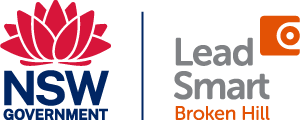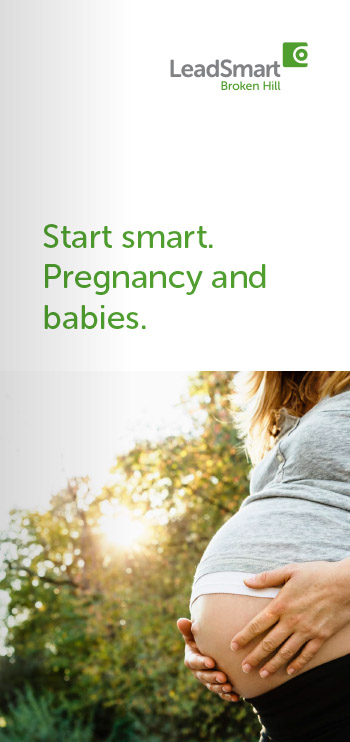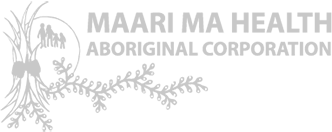If you’re pregnant or thinking of having a baby, it’s time to start planning for lead. Pregnant women pass lead to their unborn babies through their blood.
A newborn baby’s lead level is the same as their mother’s. Washing your hands often is the best way to keep lead out of your body.
In Broken Hill, a test of the umbilical cord is taken at birth to check a baby’s blood lead level. If the levels are high, it may mean there are sources of lead around the home. Help is available to identify and reduce this problem.
Free annual blood lead tests are offered to all children for their first four years. In the test, your child’s finger is pricked with a needle to get a very small blood sample. The results are immediate and let you know if your child’s level is increasing.
Eat smart
Eating healthy foods and snacking regularly whilst pregnant helps reduce the amount of lead that is passed on to your baby.
It’s good to eat lots of:
- Calcium – in dairy foods
- Iron – in red meat, chicken, fish, eggs and green vegetables
- Fibre – in grainy breads and cereals, whole fruits and vegetables
- Vitamin C – eating foods high in vitamin C at the same time as iron helps the absorption of iron.
Rainwater from water tanks looks and smells like clean water but can still contain lead. Avoid drinking it, using it to prepare or cook food, or using it to make baby formula and sterilise bottles and dummies.
Pica is the habit of eating non-food items, such as soil and paint flakes. This is more common in kids, but can affect pregnant women as well. Pica could increase your lead levels quickly. If this is happening, please see your doctor.
How babies are exposed to lead
Lead is a health risk for everyone, but it affects kids more than adults and babies most of all.Kids’ bodies absorb lead more easily. Because they are smaller and their bones and brains are still growing, the lead causes more harm.
Babies can come into contact with lead in dust, dirt or soil if it is around the home or on adults’ skin, hair, shoes and clothing.
As babies grow and are able to move around, they can swallow lead when they put things in their mouths, crawl and play on the floor, touch surfaces indoors and outdoors, and touch their mouths with dirty hands.
Clean smart
Washing hands before preparing food, feeding or handling a baby, is the best way to reduce their lead exposure. Encourage other adults to do this too.
Tradespeople, contractors and mining industry workers should change out of work clothes, shower and wash their hair before nursing babies. It is also important to teach our kids as early as possible to wash their hands properly and often.
Other ways to clean smart
Use a damp cloth to wipe down all kitchen surfaces before preparing food. A damp cloth should also be used to wipe down shelves, furniture, toys, prams, strollers and car seats regularly.
Wet mops should be used to clean floors rather than a broom. When your baby is on the floor or ground, place them on a rug or blanket. Wash these rugs and blankets regularly. Leave shoes outside.
Clean dummies or bottles and throw away food that has been dropped on the floor.
Build smart
Many families do renovation work on their homes when preparing for a new baby. But renovating can cause problems with lead. Lead dust builds up over many years in ceilings, behind walls and between and under floorboards. Working in these areas can quickly spread lead dust around the house. Removing old paint can also increase the risk of lead harm.
It’s best for pregnant women, babies and kids to stay away from the house when this sort of work is being done.
It’s also very important that dust, old paint flakes or chips are completely removed from renovated areas once the work is finished.






